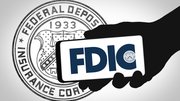Article
On the hot seat, networks streamline EMV cert, soften chargeback rules
Lawsuits, lawmakers and loads of complaints about improper chargebacks seem to have spurred AmEx, MasterCard and Visa to ease up a little on the penalties for EMV noncompliance.

June 23, 2016 by Suzanne Cluckey — Owner, Suzanne Cluckey Communications
Recently, the major card brands have come under fire in Congress — and in court — for enforcing EMV liability shifts against U.S. merchants who have chip-enabled systems in place, but can't activate them due to backlogged testing and certification systems at the network level.
They've also heard an earful from merchants and acquirers furious about a flood of issuer chargebacks entirely unrelated to EMV, and the time and money they've been obliged to spend sorting through transaction records.
Now, whether by coincidence or as a concerted effort to avoid trouble with Congress and the courts, the brands are beginning to introduce process and policy measures intended to accelerate EMV chip migration for U.S. merchants. To this end Visa, MasterCard and American Express all announced new EMV initiatives this week.
According to a Visa press release, the company has "streamlined its testing requirements, amended and simplified the terminal certification process, and committed to investing further resources and technical expertise in a manner that can reduce timeframes by as much as 50 percent."
Visa also will allow acquirers greater discretion to determine the level of testing their merchants' solutions require. The company said that this will reduce certification wait times for solutions that acquirers consider to be ready.
Visa is also exploring a system for acquirers to share certification test results in order to avoid testing duplication. If a particular merchant configuration is known to consistently work with one acquirer, then other acquirers should be aware of this and take it into consideration, the release said.
MasterCard's wording was a little different from Visa's, but echoed the same general idea:
Acquirers can now follow recommendations and use MasterCard terminal testing procedures or they can choose alternative testing processes and tools that support the integrity of their existing procedures. MasterCard has also cut the number of needed tests by 58 percent, minimizing mandatory tests and allowing acquirers to use their discretion and expertise in deciding when terminals are ready for deployment.
Visa said it will increase its investment to support both acquirers and the value-added resellers who develop the software to power chip terminals.
The company said it will make funding available to help acquirers with specific resource constraints, and help VARs precertify software solutions in a manner that will reduce the subsequent testing at acquirers by up to 80 percent.
According to the release, Visa also will provide hands-on support to VARs that need technical information, education, consulting and training.
MasterCard also announced measures intended to support VARs, including "more and dedicated resources to help accelerate terminal deployments," as well as published guidelines on standard terminal test configurations for certain industry segments, such as quick-serve restaurants and big box retailers.
All three networks said they will institute policy changes to help limit exposure to counterfeit fraud liability for merchants that are not yet chip-ready.
Effective July 22 for Visa and by the end of August for AmEx, the companies will block all U.S. counterfeit fraud chargebacks under $25. These smaller chargebacks generate a great deal of work and expense for merchants and acquirers, but have limited financial impact on issuing banks, Visa said.
According to American Express, 40 percent of its chargebacks are for amounts less than $25.
Effective in October for Visa and by the end of the year for AmEx, issuers will be limited to charging back 10 fraudulent counterfeit transactions per card account and will assume liability for all fraudulent transactions on the account thereafter. This reinforces the issuer's responsibility to detect and act on counterfeit fraud quickly, Visa said.
Following these changes, merchants can expect to see 40 percent fewer counterfeit chargebacks and a 15 percent reduction in U.S. counterfeit fraud dollars being charged back on Visa transactions, according to the release.
Both blocks will remain in effect until April 2018 for both companies.
MasterCard did not release specifics of changes to its chargeback policies, saying only that the company has policies in place "that limit merchant exposure to excessive chargebacks on fraudulent accounts."
The MasterCard press release also said that the company is adding more intelligence on its network to minimize chargeback costs to merchants who have not yet transitioned to EMV, and has implemented checks and blocks to prevent invalid chargebacks for fraud at ATMs and automatic fuel dispensers, which are not yet subject to liability shifts.
The MasterCard liability shift for ATMs takes effect in October of this year. The Visa shift for ATMs becomes effective in October 2017.
photo istock
About Suzanne Cluckey
Suzanne’s editorial career has spanned three decades and encompassed all B2B and B2C communications formats. Her award-winning work has appeared in trade and consumer media in the United States and internationally.
 ChatGPT
ChatGPT Grok
Grok Perplexity
Perplexity Claude
Claude












